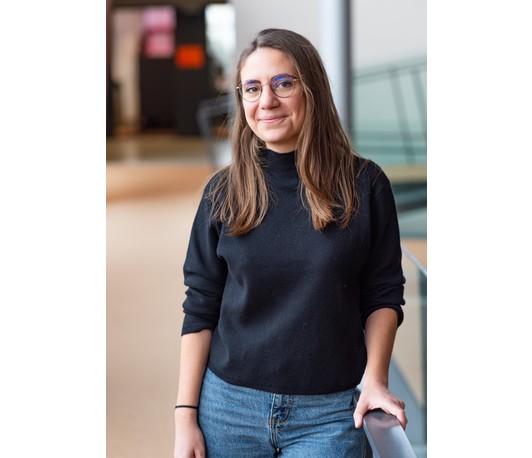Understanding the evolution of social relationships: Lessons from comparative research
Institute Seminar by Delphine de Moor
- Date: Jun 18, 2024
- Time: 10:30 AM - 11:30 AM (Local Time Germany)
- Speaker: Delphine de Moor
- My research investigates the selective pressures and evolutionary fitness outcomes of social relationships. I combine broad-scale, comparative analyses of social structure across species with longitudinal analyses of social relationships within species, with a particular focus on macaques. I have a BSc and MSc in Biology from the University of Ghent, a PhD degree in Behavioural Ecology from the University of Göttingen and the German Primate Center, and am currently a Postdoctoral Research Fellow at the Centre for Research in Animal Behaviour at the University of Exeter.
- Location: Bückle St. 5a, 78467 Konstanz
- Room: Seminar room MPI-AB Bücklestrasse + Online
- Host: Max Planck Institute of Animal Behavior
- Contact: gabriella.gall@ab.mpg.de

Dimensions of the social environment consistently emerge as some of the strongest predictors of fitness across a broad range of social mammals. This includes taxa spanning hundreds of millions of years of independent evolution and encompassing a highly diverse set of social relationship types. How can we understand the selective pressures that shape this diversity? Comparing social structures across species with different ecologies and kinship structures offers a promising route. However, the complexity of social behavioural data and variations in data collection methods pose significant challenges to such comparative analyses, mainly due to a lack of comparable social relationship data and the statistical methods to analyse them. In this talk, I will present MacaqueNet, a collaborative cross-species database of standardized macaque social behaviour data. I will discuss the challenges encountered in building and analysing this dataset and share insights gained from addressing them. Additionally, I will discuss my research combining comparative approaches and detailed longitudinal data to further our understanding of how kinship and environmental pressures shape social structure.
The MPI-AB Seminar Series is open to members of MPI and Uni Konstanz. The zoom link is published each week in the MPI-AB newsletter.